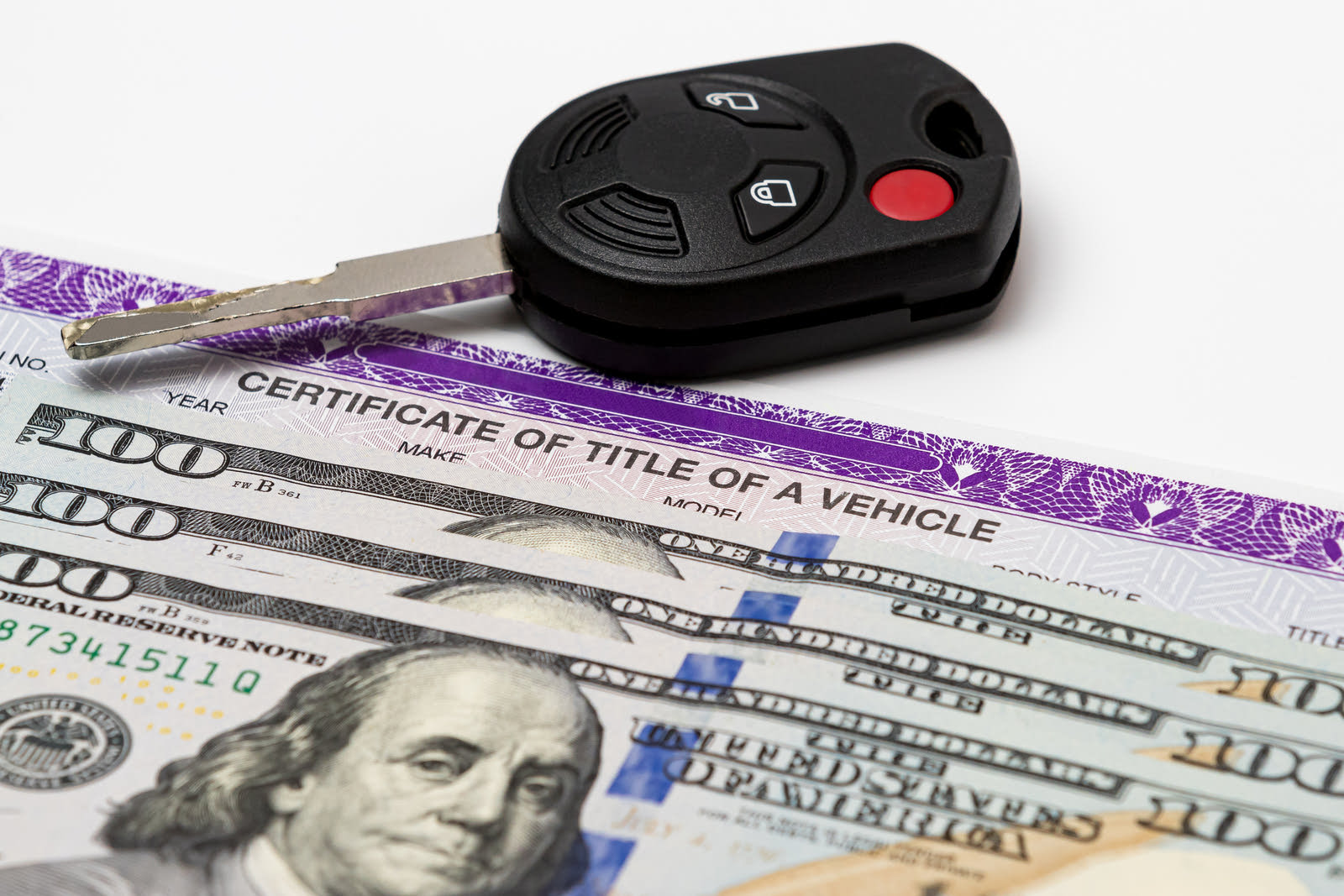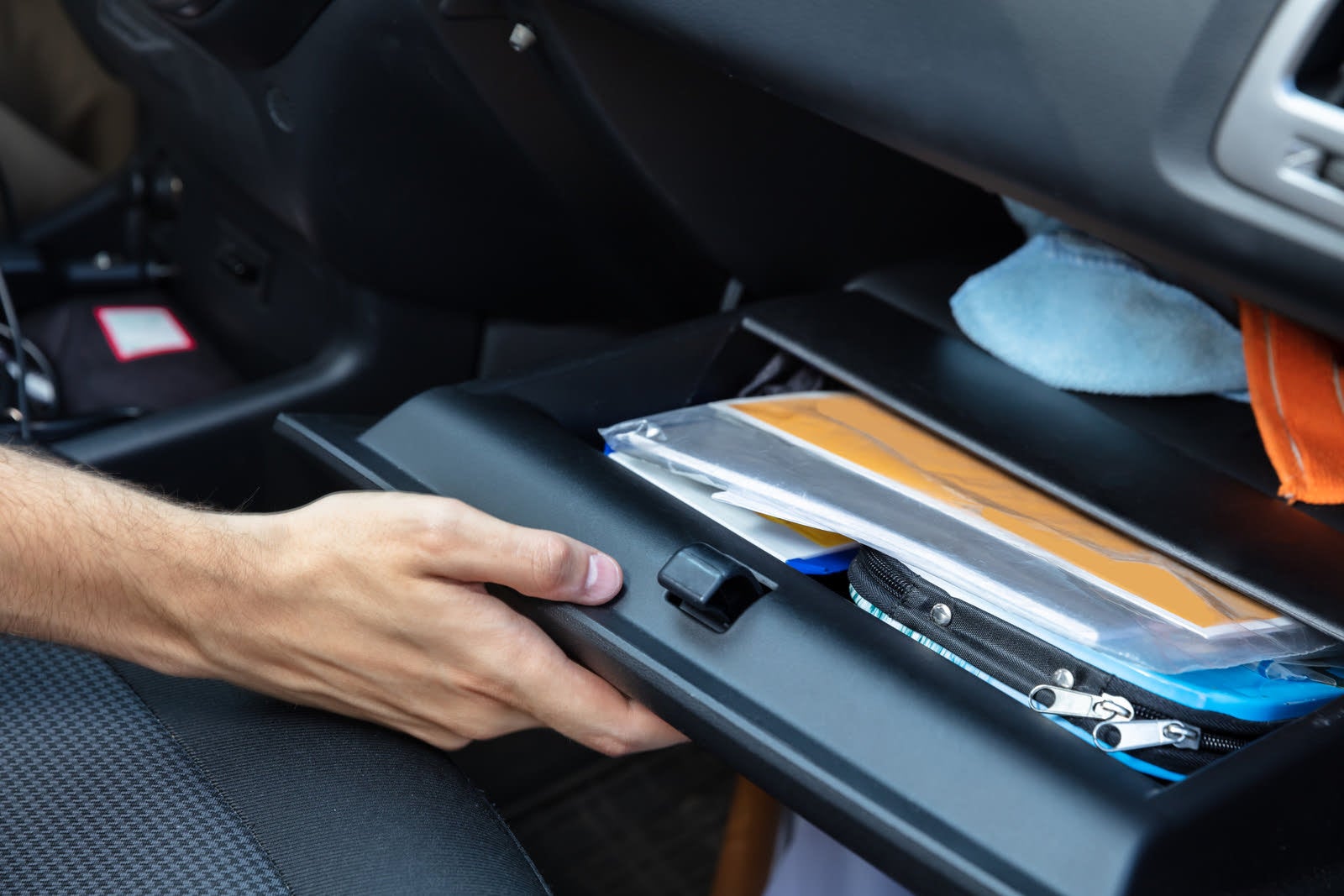Have you ever been watching a movie or television show and heard someone shouting about a car race for pink slips? The two cars line up and the winner of the drag race takes home the loser's car. Beyond seeming very illegal (it almost always is), these situations might have you wondering what a pink slip actually is.
The term pink slip isn’t one that is used in everyday conversation, nor is it one that younger people have heard much, if at all. As it turns out, while there’s probably not a whole lot about pink slips you don’t already know or haven’t at least heard before, the topic is still worth a closer look.
What’s The Difference Between A Title And A Pink Slip?

If you’re asking yourself whether or not there’s a difference between a car’s pink slip and its title, ask no more. You don't even need to break out a thesaurus. A pink slip and a car title are the same things. They're synonyms. But for Hollywood, the term "pink slip" works better on screen. The name comes from California, where the titles issued before the late 1980s were actually printed on pink paper. Today, the name is popular in movies and television shows, where people race each other for “pink slips.”
Beyond the fact that racing for a car’s title is illegal in the vast majority of circumstances, pink only makes an appearance as a supporting color on most states’ title paperwork. Many states use white paper, with various colors woven in as a security measure to make it harder for counterfeiters.
What Exactly Is a Pink Slip or Title?

No, we're not talking about getting a pink slip from an employer during a layoff. That term is used to describe a termination notice when someone is no longer working for a company.
A vehicle’s title, otherwise known as a certificate of title, is the legal document that establishes its registered owner, whether that be an individual or a business. Titles are usually issued by the Department of Motor Vehicles, but the process through which the title is issued, its appearance, and the exact information contained within it vary slightly from state to state. In most cases, titles show:
- The vehicle identification number (VIN), which is a 17-digit string of both letters and numbers that is unique to each vehicle.
- The vehicle's legal owner’s information, including name and address.
- Any lienholder information, assuming the vehicle was purchased with a loan.
- Financial information, including vehicle's purchase price and any taxes to be paid.
- The vehicle’s registration information, such as its license plate number.
- The vehicle’s mileage (for both new and used cars).
If the new car was purchased using financing, either from a bank or other financial entity, the title is usually held by the lender until the loan has been repaid. The lender’s name and information also usually appear on the title.
When Will You Need The Pink Slip?

Though a car’s title isn’t something that is needed on a daily basis, there are plenty of occasions in which it’s a requirement.
When you decide to sell your vehicle, whether it’s financed or not, you’ll need the title. Since ownership of the vehicle is being transferred from one person to another, the title needs to be updated with the new owner’s information. This usually involves updating the title with a signature from both parties, as well as supporting information about the sale. In most states, there’s a designated area on the title—usually on the back—to enter information on a vehicle’s sale. The new owner’s information is entered there, and in some cases, the new owner must send or take the title to the DMV to have a new document issued showing their ownership. Some states also require the use of a notary and additional documentation, such as a bill of sale or tax information before issuing a new title. Once the title has been signed and the vehicle has officially been turned over to the new person, the buyer may receive temporary registration or some other documentation showing that they are the legal owner of the car.
Similar to the process when a vehicle is sold, giving a vehicle to another person requires an update to the title. Even though there’s no money changing hands, there may still be tax obligations on one or both parties, and the title still needs to be updated with the new owner’s name.
Finally, in some cases, people may wish to obtain what is known as a title loan, which is when ownership of the vehicle is offered as collateral. Title loans are helpful for people with poor credit or no credit because the vehicle’s value secures the loan. If the loan is not repaid, the lender has the legal right to seize the vehicle to recoup the loss of the loan funds.
What Happens If The Pink Slip Is Lost?

If it’s not clear already, your car’s pink slip is one of the most important documents related to your vehicle. Like your social security card, it’s not a document that should be carried around daily. It should be kept safely at home. If you’ve lost your vehicle's title or if it has been damaged or destroyed, you’ll need to get a new one. Like many other things automotive, the process of getting a new title is different from state to state, but in most cases, it involves contact with the DMV.
Getting a new title usually involves sending a notarized title application to the DMV along with some form of identification. Since there’s sensitive information involved, it’s usually best to deliver the documents in person, but registered mail is also acceptable. It’s also important to note that most states require an application fee.
No matter what you call it, the pink slip is one important piece of paper. You won’t think about it much at all until you need it, and when it’s not available things can become difficult in a hurry. You’ll need the pink slip to sell or transfer the vehicle to another person, so take care to keep it in a safe place. Just don’t enter into any high-stakes illegal street races, and you should be just fine.
Related Topics
How To Buy a Car with Bad Credit
What to Look For When Buying a Used Car
The Beginner’s Guide to Car Insurance
